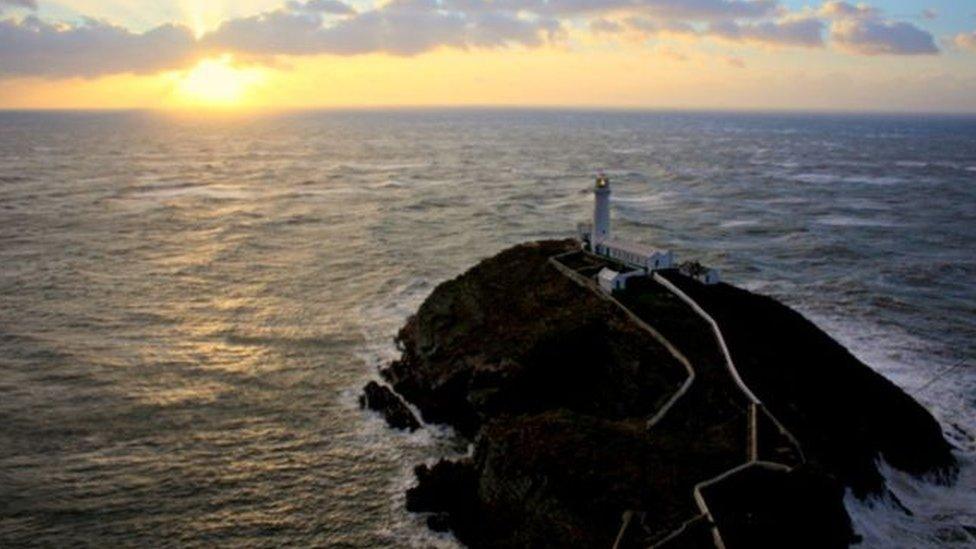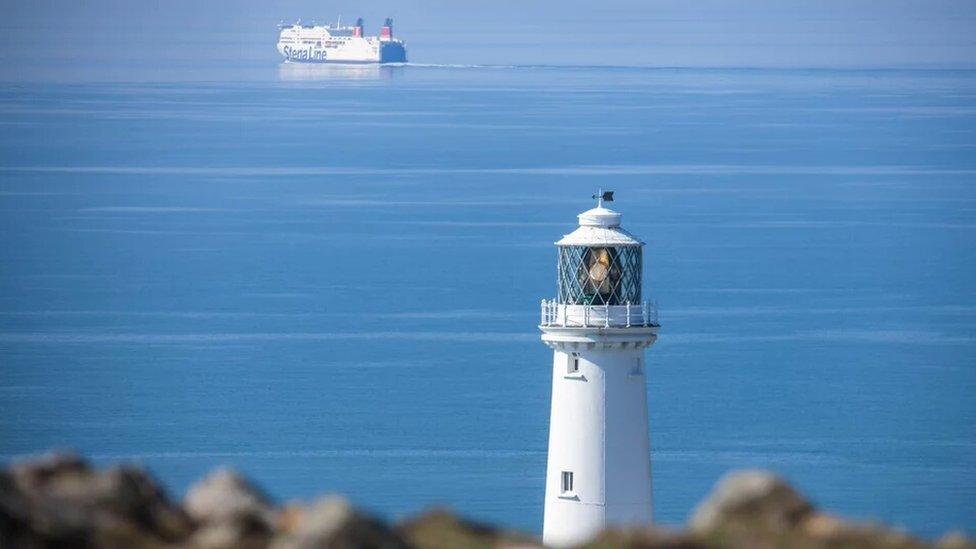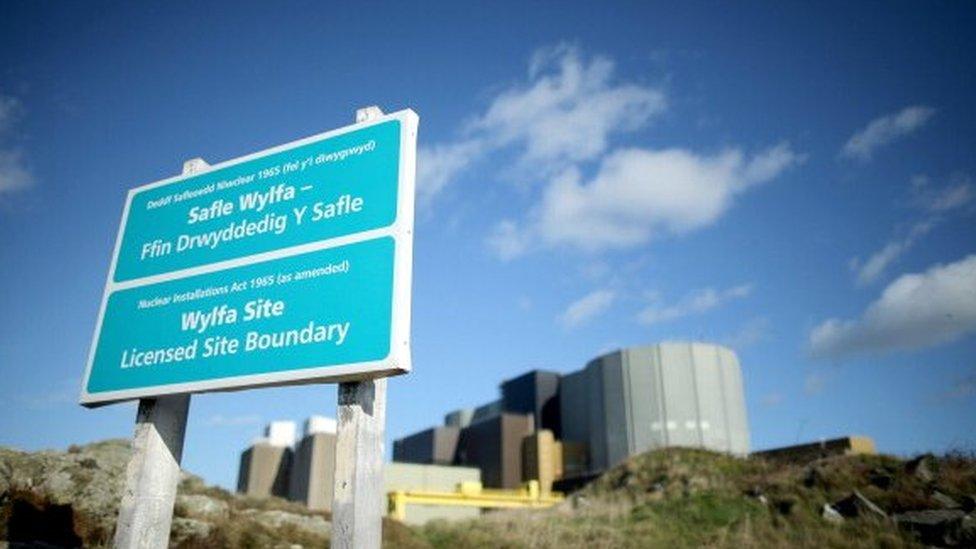Anglesey tidal energy scheme planning inquiry to begin
- Published

A planning inqiury to determine if one of the world's largest tidal energy sites can be developed off the Anglesey coast is due get under way later.
The £35m Morlais scheme would cover 35 sq km (13 sq miles) of seabed to generate 240MW of electricity for 180,000 households via the power of the Irish Sea.
It is expected to create 100 jobs.
But opponents claim it will industrialise the seascape and could kill seabirds and marine mammals.
Menter Môn, the social enterprise behind the scheme, said electricity would be generated by a series of tidal turbines located beneath the sea at South Stack, making it one of the largest tidal stream energy sites in the world.
But the development will not be totally hidden beneath the waves, according to the Local Democracy Reporting Service.

The cliffs become home to about 1,400 razorbills every year
Gerallt Llewelyn Jones, of Menter Môn, said: "The southern part of the zone, depending upon the rate of development and upon the rate of growth, will have some turbines which have components floating on the surface.
"It will never be greater than six metres in height and the frequency of them, in our view - it's a subjective matter at the end of the day, how you define visual impact."
The South Stack Heritage Group said it was is concerned about the impact the scheme will have on the "beautiful seascape around us".
Member Tom Roberts, whose business, overlooks the proposed site, said: "We absolutely need clean energy, I 100% agree. But what we don't need is to lose our wild spaces and biodiversity."
RSPB Cymru is worried diving seabirds, dolphins and porpoises could be at risk from the turbines.
"The developer's own environmental assessment says that in the worst case scenario you could lose 97 or 98% of some seriously important species," said Alun Pritchard from the charity.
Menter Môn said steps to limit the visual and environmental impact are being taken.
The inquiry into the scheme - held as the project is considered a development of national significance - is set to cover three weeks with a decision expected by the middle of 2021.
If approved, a separate maritime license is earmarked for August.
- Published11 August 2020

- Published25 September 2017

- Published15 September 2020
